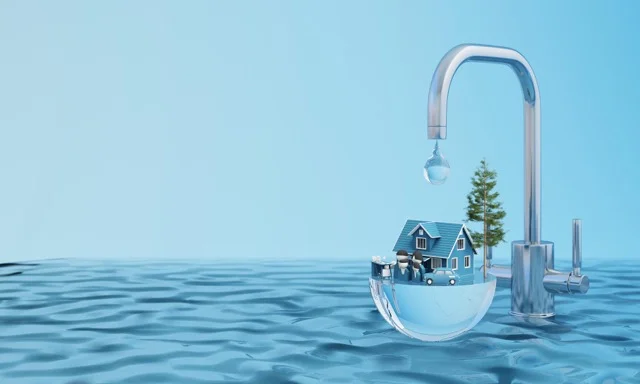How Reclaim Waste can Save You Time, Stress, and Money.
How Reclaim Waste can Save You Time, Stress, and Money.
Blog Article
Not known Facts About Reclaim Waste
Table of ContentsSome Ideas on Reclaim Waste You Need To KnowGetting My Reclaim Waste To Work10 Easy Facts About Reclaim Waste DescribedAn Unbiased View of Reclaim WasteSome Known Questions About Reclaim Waste.
Discover the kinds, events, and kinds of liquid waste. Residential sewage waste refers to the waste and products from a property septic container. This sort of waste is created by human beings in houses, colleges, and other structures. This only includes sewage-disposal tanks that have a drainpipe field. The proper monitoring and disposal of domestic sewer waste call for liquid waste to be transferred to a sewer treatment plant where the correct approaches and equipment are applied to cleanse and take care of waste.
Industrial waste usually consists of prospective hazards, such as combustible materials or a blend of fluid and solid waste products, and requires an advanced and comprehensive disposal process. The disposal of industrial waste usually involves the filtration of waste prior to transport to make certain safe and appropriate disposal. Industrial waste is produced from by-products and overflow of industrial procedures and manufacturing.
This kind of waste can not make use of the same sewer administration transportation or procedures as septic or industrial liquids. The industrial waste administration procedure needs the inspection and screening of liquid waste prior to it goes through the disposal process (liquid waste removal melbourne). Runoff waste is the liquid waste that originates from drainage and excess stormwater in very booming locations or cities
Drainage waste can create contamination and flooding if not dealt with effectively. Ensuring appropriate waste administration can stop disasters and decrease environmental harm.
How Reclaim Waste can Save You Time, Stress, and Money.
Contact PROS Solutions today to discover our waste administration and disposal services and the correct methods to take care of the fluid waste you create.
(https://reclaimwaste1.blog.ss-blog.jp/2024-11-12?1731425991)Do you know what happens to your water when you disengage, flush the toilet or drain pipes the cleaning equipment? No? Well, it's worth recognizing. This supposed 'wastewater' is not only a vital source yet, after therapy, will certainly be released to our land, waterways or the sea. Used water from bathrooms, showers, baths, kitchen area sinks, laundries and commercial processes is known as wastewater.

water made use of to cool machinery or clean plant and tools). Stormwater, a form of wastewater, is overflow that streams from agricultural and urban areas such as roofings, parks, yards, roads, paths and seamless gutters into stormwater drains, after rainfall. Stormwater flows without treatment straight to regional creeks or rivers, ultimately reaching the sea.
How Reclaim Waste can Save You Time, Stress, and Money.
In Queensland, the majority of wastewater is dealt with at sewage treatment plants. Wastewater is carried from residential or industrial websites through a system of drains and pump terminals, called sewage reticulation, to a sewage therapy plant. Regional governments construct, preserve and run most sewage therapy plants. Operators are licensed under the Environmental Management Act 1994 to discharge treated wastewater at an appropriate environmental standard right into waterways.
The Department of Natural Resources suggests local governments concerning handling, operating and preserving sewage systems and therapy plants. In unsewered areas, local governments might call for homeowners to set up private or home sewer therapy systems to deal with residential wastewater from toilets, kitchen areas, bathrooms and washings. The Department of Natural Resources authorizes making use of family systems when they are confirmed to be effective.
In some new class, treatment of some stormwater to eliminate trash, sand and crushed rock has begun using gross pollutant traps. Wastewater therapy takes place in 4 phases: Removes solid matter.
Wastewater after that flows right into big storage tanks where solids clear up and are eliminated as sludge. Oil and residue are skimmed from the surface area. Makes use of small living microorganisms called micro-organisms to break down and eliminate remaining dissolved wastes and great particles. Micro-organisms and wastes are integrated in the sludge. Removes nitrogen and phosphorus nutrients that could create algal blossoms in our rivers and intimidate aquatic life.
Reclaim Waste Things To Know Before You Get This
Nutrient elimination is not available at all sewage therapy plants because it requires expensive specialist equipment. Clear liquid effluent generated after treatment might still contain disease-causing micro-organisms - industrial wastewater treatment.

Most wastewater streams right into the sewerage system. Under the Act, regional governments carry out authorizations and licences for environmentally pertinent tasks (Ages) including wastewater launches that could have a local effect.
The Basic Principles Of Reclaim Waste
Otherwise, examples are considered laboratory evaluation. Frequently many tests are needed to establish the degrees of each of the various pollutants such as oils, hefty steels and chemicals in water. Surveillance provides accurate info about water quality and can verify that licence problems are being satisfied. The details acquired via monitoring provides the basis for making water top quality choices.
Report this page